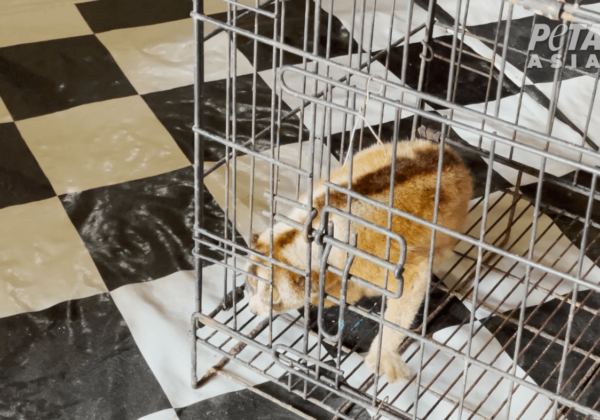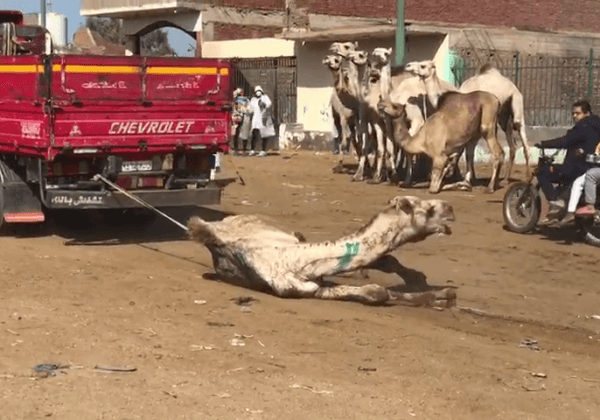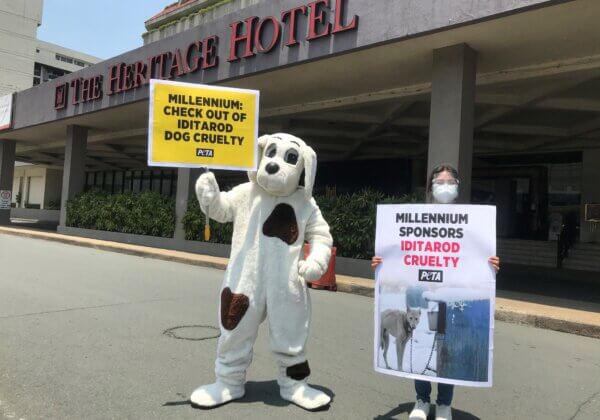Taiji Dolphin Slaughter Ends With 740 Victims
PETA’s friends at Dolphin Project report that 740 dolphins were either killed or taken captive in this year’s annual slaughter in Taiji, Japan. For six months, fishing vessels sailed out of Taiji, hunted down pods of wild dolphins, surrounded them, and drove them back toward land and the infamous killing cove. Many more dolphins likely died in the process.

In the cove, dolphin hunters snared the animals with nets and dragged them to shore for the selection process. Dolphin trainers work with them to help choose the most beautiful ones—the ones who will be sold to marine parks and “swim with dolphins” encounters.

A metal rod is rammed down the spines of others, and they die of hemorrhaging or suffocation in full view of their friends and family members. Their flesh is then sold as meat.

Dolphin Project’s Ric O’Barry stated:
“[W]e witnessed dolphins chased, injured, manhandled, run-over by skiffs, dragged, drowned, taken captive and slaughtered. Entire pods of dolphins were decimated, from the very young to the very old.”
Why? So human tourists can pet dolphins and take pictures with them.
The captive-dolphin industry supports the Taiji dolphin slaughter. When humans stop paying to see sick, depressed dolphins performing stupid tricks, swimming in circles in cramped tanks, or hauling humans around, the slaughter will no longer be profitable.

Dolphins deserve better.
Dolphins’ brains are much larger than those of humans. (Many would argue their hearts are, too.) These brilliant animals use complex echolocation to navigate the vast ocean, and several species swim up to 60 miles a day. They have highly developed communication skills, and it’s believed that individuals respond to the sound of a signature whistle the same way humans respond to the sound of their names. Forcing these brilliant animals to live inside cages for our entertainment is moral bankruptcy.

Let’s end the dolphin slaughter.
If you care about dolphins, please don’t pay to see them in captivity. Ticket sales mean misery for them. Take action by urging the governor of Wakayama Prefecture to use his influence to help stop the slaughter of dolphins.
Note: A PETA U.S. staffer captured each of these images of the killing cove in 2013.









